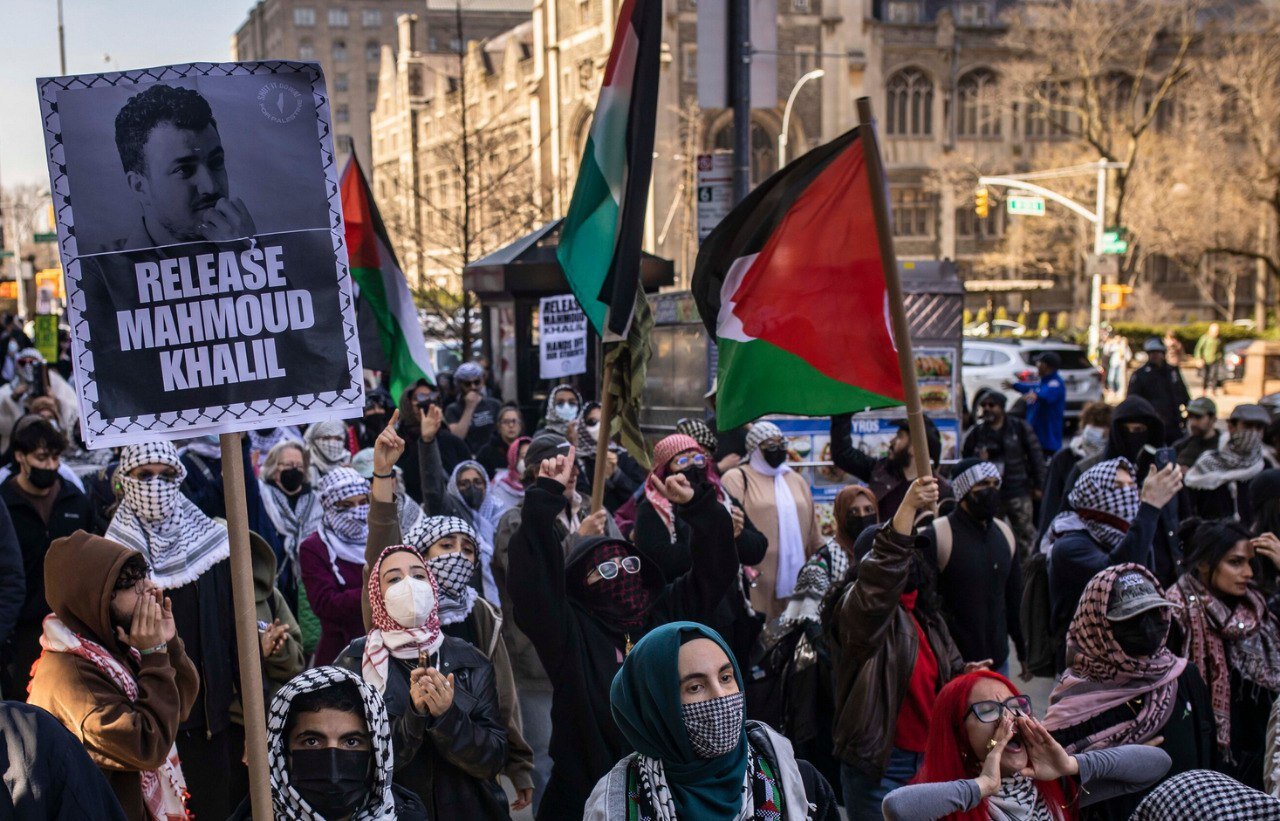Trump’s repression machine targets pro-Palestine voices in colleges
US uses budget cuts, student expulsions and visa cancellation to curb academic solidarity with Gaza

TEHRAN - In his second presidential term, Donald Trump has implemented a series of policies that significantly impact students in the United States who support Palestine and Gaza in particular. These measures, framed under the guise of combating anti-Semitism, have raised substantial concerns regarding freedom of speech, academic freedom, and the targeting of pro-Palestine activists.
In January 2025, President Trump signed an executive order aimed at addressing what his administration claimed was a surge in anti-Semitic activities on college campuses. This order directed federal agencies to explore civil and criminal actions against students and university personnel advocating for Palestinian liberation or criticizing Israel's actions in Gaza. Notably, the order called for identifying legal avenues to deport non-citizen students involved in pro-Palestine protests, effectively conflating criticism of Israel with anti-Semitism.
The administration's policies have led to tangible actions against student activists. For instance, Rumeysa Ozturk, a Turkish student at Tufts University, was arrested by ICE (U.S. Immigration and Customs Enforcement) and had her student visa revoked after writing a pro-Palestine op-ed, following an online smear campaign by a pro-Israel lobbying group. Mahmoud Khalil, a Columbia student, reportedly had both his visa and green card revoked after joining peaceful campus protests against the war in Gaza. In both cases, immigration enforcement was weaponized to punish dissent.
Financial pressures on academic institutions
Beyond individual actions, the Trump administration has exerted financial pressure on universities perceived as insufficiently supportive of its policies. Columbia University faced the loss of $400 million in federal funding.
Brown University saw a $510 million NIH grant frozen.
Harvard University received an ultimatum with nine demands, including dismantling DEI (diversity, equity, and inclusion) programs and banning masks at protests, under threat of losing nearly $9 billion in funding.
Princeton University and the University of Pennsylvania have also faced similar investigations and funding threats.
These universities are being compelled to reshape their internal policies, speech codes, and student regulations in ways that critics argue are designed to placate the federal government rather than support academic integrity.
Criticism and legal challenges
These policies have drawn sharp criticism from civil rights organizations and legal experts. The American-Arab Anti-Discrimination Committee (ADC) has warned that the executive order violates First Amendment rights by targeting pro-Palestine activists, arguing that it undermines fundamental freedoms of speech and association.
Legal scholars have also highlighted potential constitutional violations, emphasizing that immigration enforcement predicated on protected speech is unconstitutional.
Impact on academic freedom
The administration's actions have instilled anxiety among faculty and students, particularly at institutions like Harvard University. Faculty members have expressed concerns about potential capitulation to political pressures, fearing that compliance with federal demands could compromise academic independence and freedom of expression.
The Trump administration’s policies toward student activism are not isolated incidents—they represent a broader trend of authoritarian governance cloaked in the language of national security and anti-hate legislation. By suppressing dissenting voices, weaponizing federal power against academic institutions, and conflating political criticism with hate speech, the administration is dismantling the very freedoms it claims it stands for.
If universities, the traditional bastions of free thought, yield to this pressure without resistance, the implications will ripple far beyond the Palestinian cause. Today, it is Gaza. Tomorrow, it could be climate activism, anti-war protests, labor organizing, or any movement that challenges the powerful.
How can the United States advocate for freedom of expression in Iran, China, or Russia while jailing its own students for peacefully protesting the deaths of civilians in Gaza? How can Washington accuse other nations of stifling dissent while using ICE to detain foreign students whose only "crime" was supporting Palestinian rights?
This inconsistency weakens America's moral authority on the global stage and undermines the very democratic ideals it claims to uphold. As the administration attempts to win hearts and minds globally, these domestic actions reveal a troubling double standard.
Leave a Comment